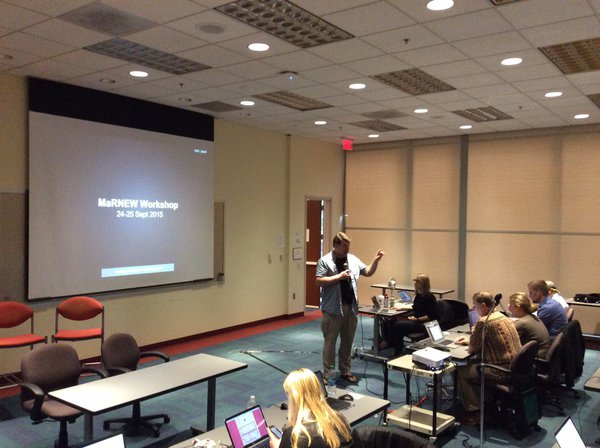Filter by topic and date
Impressions from the MaRNEW Workshop
- Natasha Rooney MaRNEW Co-chair, GSMA
29 Sep 2015
Claims of encryption having a effect on network bandwidth optimisation methods have been coming thick and fast to the IETF since IETF89. To help understand the real use cases and issues the IAB organised the Managing Radio Networks in an Encrypted World (MaRNEW) Workshop working with the telecoms association, GSMA.

The workshop aimed to both develop ideas for research and standards for network management in an encrypted world as well as bring together mobile operators and IETF attendees. 50 people attended the workshop from various industries such as mobile operators, OEMs, CDN providers, content providers, and browser vendors.
The workshop had seven major sessions which covered scene-setting, network or transport solutions, application layer issues, and regulation. Scene-setting and declaring items in scope was paramount; the group agreed at the beginning of the workshop that encryption is increasing and should not be broken, and network management has to work. Policy and interception were marked clearly out of scope. Other scene-setting topics covered the issues experienced when deploying encryption covered in Effect of Ubiquitous Encryption, and the importance for user privacy and difficulties with trust models. These sessions came early so later panels understood the key requirements of user privacy and existing network management solutions.
Network or transport solution sessions tackled suggestions raised in position papers including transport optimisation and cooperative frameworks (either sending data up or down for network management benefits, or both). The application session was perhaps most insightful, as CDNs and content providers explained the real monetary losses when mobile networks don’t adhere to standards. Finally a session on technical response to regulatory action made clear the regulation placed on mobile operators and how all industries could respond to this action for the benefit of everyone.
Throughout the two days a number of ideas and suggestions were made on how to tackle the issue of mobile network management for encrypted traffic. Some of these included: evolving TCP (or using a new protocol) for better congestion control, Mobile Throughput Guidance for first hop RAN information sending up to endpoints, tagging packets for latency bandwidth tradeoff (research is needed to determine if metadata is necessary for network management and if so, how much metadata is really needed), and blind caching through storing encrypted content and fetching keys / location from the original content server. Better metrics and metric standards were requested as past hand-wavy claims about network management have not been helpful to providing a better service to users. Perhaps most importantly there was a number of calls for better collaboration between network and content providers; some great stories showed how content providers have upgraded network providers equipment in effort to improve end-user experience. By working together we can achieve great user experience.
Minutes and a workshop report now have to be generated, and IETF94 attendees will get a more in-depth overview of the workshop in the SAAG meeting. From this week the Technical Programme Committee will go through the minutes and create a list of all the possible solutions, whittle these down to a feasible list and discuss these publicly on an IETF mailing list, most likely marnew@iab.org. Some of these solutions will turn into real work items, these may be new IETF drafts, groups, supporting existing drafts, research or collaborative projects. Look out for new information soon!
As a co-chair of the workshop I want to say thank-you to the attendees and the IAB for helping us organise the event and to provide a place to discuss these issues openly. I hope all attendees had a great time and that we will all continue to work together for better user experience, user privacy, ubiquitous encryption, and fast mobile connections. Thanks again!